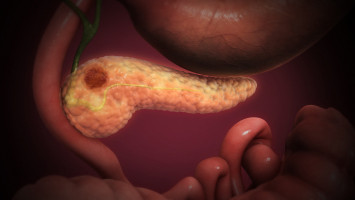
Albizzia julibrissin is a widely distributed plant in China.
Its dried stem bark has been used in traditional oriental medicine to treat insomnia, diuresis, sthenia, ascaricide, and confusion.
Phytochemical investigations on the components of the stem bark of Albizzia julibrissin resulted in the isolation of saponins, lignans, phenolic glycosides, triterpenes, flavonoids, and others.
The bioactive ingredients from Albizzia julibrissin have been reported for their medicinal activities such as anti-tumour, inhibitory effect of diarrhoea, and a sedative activity.
Nonetheless, to date, literature on polysaccharide as an important component of Chinese herbal remains scarce, particularly in the case of polysaccharide in Albizzia julibrissin.
In the recent study published in Glycoscience & Therapy, a team of researchers in China extracted a novel polysaccharide fraction, AJDW, from Albizia julibrissin (AJD). It is composed of glucose, galactose, xylose, arabinose (with a molar ratio of 7.36: 9.03: 7.06: 2.24: 1).
“To our knowledge, this is the first report about the condition of polysaccharide extracted from AJD,” says co-corresponding author Fei He.
“We demonstrated that AJDW could inhibit the growth and proliferation of pancreatic cancer in vitro and in vivo. Notably, this polysaccharide suppressed pancreatic cancer migration, blocked cell cycle and induced ROS-mediated apoptosis by reducing mitochondrial membrane potential linked to PI3K/Akt/mTOR signaling pathway.”
Pancreatic cancer is a fatal malignant tumour with poor prognosis, and most of the current chemotherapeutic agents are prone to drug resistance and have extreme side effects.
Many studies have reported that polysaccharides can exert effective anti-tumour activity and have a promising safety. Hence, the discovery of polysaccharides with anti-pancreatic cancer activity is in clinical demand.
“In our work, patient-derived xenografted mice model was constructed, and AJDW would completely impede pancreatic cancer growth in nude mice, which was matched with the anti-pancreatic cancer activity in cellular level.” Adds She.
“Our findings not only showed the novel polysaccharide compound in Chinese herbal AJD, but also revealed its anti-pancreatic cancer effect.”
This discovery provides the material and theoretical basis for the potential anti-tumour effect of AJD, further facilitating the development of new anti-pancreatic cancer drugs based on natural ingredients.
Source: KeAi Communications Co., Ltd.
We are an independent charity and are not backed by a large company or society. We raise every penny ourselves to improve the standards of cancer care through education. You can help us continue our work to address inequalities in cancer care by making a donation.
Any donation, however small, contributes directly towards the costs of creating and sharing free oncology education.
Together we can get better outcomes for patients by tackling global inequalities in access to the results of cancer research.
Thank you for your support.